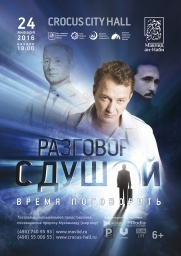Aydar Gazizov: Russia - Organization of Islamic Cooperation: new prospects for cooperation in the sphere of "Halal" industry
The Delegation of the Russian Muftis Council, represented by the head of the
International Center of Standardization and Certification "Halal" Aydar Gazizov
and Deputy Director of Development of the standard "Halal" Samat Sadykov,
presented Russia and Russian Muslims at the First International Conference on
the Food Supply "Halal", which was held under the patronage of Custodian of the
Two Holy Mosques King Abdullah bin Abdulaziz, from 12 to 15 February 2012 in the
capital of the Kingdom of Saudi Arabia, Riyadh. The conference was attended by
representatives of the Organization of Islamic Cooperation, governments of some
OIC countries, the world's leading "Halal" certification bodies. The organizer
of the conference and accompanying exhibition was the State Authority of Saudi
Arabia Food and Drug Administration SFDA. On results of business trip, we talk
to Aydar Haji Gazizov.
Aydar Gabdullovich, what was your report dedicated to at the
conference?
I would like to note that preparations for the conference was initiated by us
a few months before it started. During this time we spent a lot of preparatory
work, as we have agreed with the organizers of the theme of the presentation:
"The "Halal" certification of food products in Russia."
At the beginning of our presentation we talked about the history of the spread of Islam in the territory of modern Russia, where many communities have adopted Islam, began to live according to Sharia and feed products "Halal". And throughout the 14th century, despite all the difficulties our ancestors continually observed the divine precept of "Halal" ("permitted, allowed") and "Haram" ("forbidden").
In 1991 there was a collapse of the Soviet Union and decades of state policy of atheism ended. Muslims of the new Russia were able to freely observe the rules of Islam. Hundreds of mosques and madrasas have been opened. The increase of the number of practicing Muslims among the indigenous population of Russia, the moving to the Central part of Russia of Muslims from North Caucasian republics, mass labor migration of the Muslim population of the countries of Central Asia in Russian cities led to the need for mass production of "Halal". This period was characterized by virtually uncontrolled production of products "Halal" in individual enterprises of Russia, the appearance of counterfeit products that displeased Muslims. After numerous requests of the faithful, the Russian Muftis Council in March 2003 addressed to the Administration of President of the Russian Federation to protect the interests of consumers of the Muslim at the legislative level. By this time, Russia has already been put into effect a set of international standards of Codex Alimentarius Commission and the Federal Law of Russian Federation № 184 "On technical regulation". In August 2003 a meeting was held with representatives of the Presidential Administration, the Russian Muftis Council, a number of ministries and research institutions. As a result of the meeting the Russian Muftis Council was entrusted to develop a document that defines the basic requirements for the production of "Halal", after which the Russian Muftis Council of in the same 2003 developed and launched the first in the history of Russia and the CIS standard of "Halal": "Requirements for the production, manufacture, processing, storage and sale of products "Halal" - HALAL-PPT-RMC". I would especially like to acknowledge the huge contribution to the development of standards made by the founder of the industry "Halal" in Russia, director of department for development of the standard "Halal" of our International Centre Azizbaev Zhafar Khusainovich. The designed standard was subsequently used as a basis for territorial committees "Halal" of Republics of Tatarstan and Bashkortostan, as well as by the Technical Committee number 57 on the standardization of "Halal" of Republic of Kazakhstan.
We talked about today of the Muslim community of Russia, which consists of 22 million indigenous people of our country and another five million migrant workers, and includes 57 ethnic groups, spoke about the activities of the Russian Muftis Council. The report illustrated with colorful slides. We have shown, in particular, as Russian President Dmitry Medvedev for the first time crossed the territory of the Moscow Cathedral Mosque and the Chairman of the Russian Muftis Council Mufti Sheikh Ravil Gaynutdin hazrat familiarized him with the plan of reconstruction of the mosque and also about the visit to the residence of the Russian Mufits Council, of the Prime Minister of the Russian Federation Vladimir Putin.
Speaking directly about the activities of our center, we talked about collaboration with reputable specialized research institutes, modern laboratories, which make highly-precise tests for banned substances. We also shared the extensive experience gained in dealing with a variety of situations related to the certification of products "Halal".
We have shown that one of the activities ICSandS "Halal" is to train professional experts "Halal" and hold regular training courses and refresher courses for managers, engineers and other professionals, we are always willing to invest the time and effort.
We have presented a range of certified products, and we have shown that Russia itself is ready to export high-quality and competitive products. We also talked about the import and the potential of Russia. In this regard, we presented an exhibition the Moscow Halal Expo, which in 2012 will be held the third time as a bridge to the Russian market for foreign producers.
The conference also included a profiled exhibition. Were there any Russian company? Were there any negotiations outside the working sessions of the conference?
February 14-15, the final days of the First International Conference on the Food Supply "Halal" and an accompanying exhibition passed. The International Center of Standardization and Certification "Halal" of the Russian Muftis Council was represented at the exhibition, which attracted dozens of the world's leading manufacturers of "Halal" products, as well as certification bodies "Halal." Besides our Center, the company "Hema" participated in the exhibition, the company entered overseas markets with our certificate and producing rapid tests to detect the presence of pork in products.
We held a series of business meetings with potential partners from the Member States of the Organization of Islamic Cooperation, including a representative of the Islamic Chamber of Commerce (Islamic Chamber of Commerce and Industry) for OIC, Ahmed Muheddin.
Is there a positive experience of Russian exports of halal products to markets in the Islamic world? And what export route in your opinion the most promising?
Several Russian companies certified by our center for 5 - 6 years have been successfully supplying desiccated milk, confectionery, ingredients and additives for the meat industry and other products in such Muslim countries as the Kingdom of Saudi Arabia, United Arab Emirates, Iran, Jordan and others. The authority of the Russian Muftis Council and a certificate of "Halal", issued by our center, play a very important role in the positioning of Russian producers in the markets of Islamic countries.
It should be noted that at the present time in Russia the poultry industry has been rapidly developing, including the segment of the industry "Halal". At the end of the last year, the Russian Federation joined the WTO. Given the fact that Russia is close to saturation of the domestic market of domestic poultry producers, itself begs the question of exports. For companies that produce products "Halal" there is a priority to enter with their products abroad markets such as countries of the Organization of Islamic Cooperation (OIC). This organization includes 57 countries. This is a very large and promising market for exports, which must be mastered.
Today in Russia, you are not the only ones who certify their compliance on a standard of "Halal". The same applies to the world market "Halal". Do you think there will come one day to the unification of industry standards, and whether it is necessary at all? Is there any competition between certification bodies in Russia?
The talk about making a single standard for all OIC countries has been going on for a long time, because even among the 57 OIC countries there is no single agreed standard. But I think that even if such a standard will ever be adopted, given the great responsibility to consumers, the importing country will oversee the production of products "Halal".
And the fact that we are not alone, does not interfere to our activities, I would like to wish our colleagues: working in this difficult field, we must never forget how great is our responsibility before God the Creator and to our customers.
Interviewed by Dilara Ahmetova.
 Mawlid an-Nabi in Crocus City Hall
Mawlid an-Nabi in Crocus City Hall
